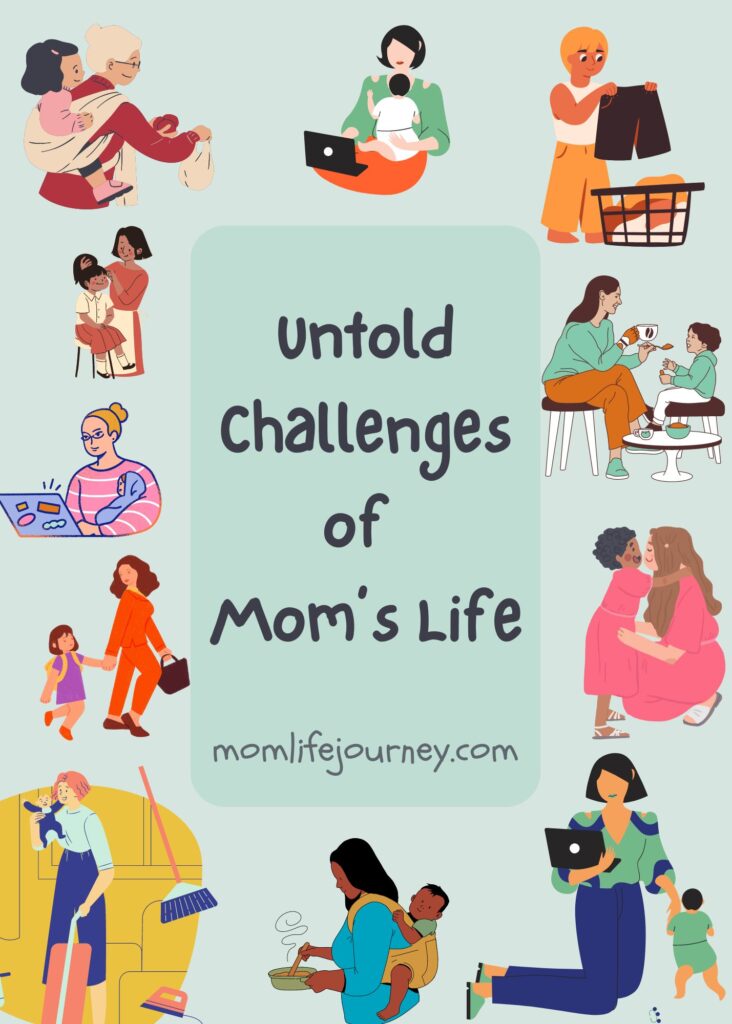
Bringing a new life into the world is a transformative experience, one that comes with joy, excitement, and a sense of fulfillment. However, the postpartum period can also be an incredibly challenging time, especially for Indian women. This phase, often referred to as the “fourth trimester,” is marked by physical recovery, emotional upheaval, and the adjustments that come with a newborn. For Indian women, these challenges are compounded by cultural expectations, traditional practices, and the dynamics of joint family systems. In this article, we will explore the multifaceted challenges Indian women face during postpartum, shedding light on the support they need to navigate this critical time.
The Physical Recovery
The journey of childbirth leaves a woman’s body in need of significant healing. Whether through vaginal delivery or cesarean section, the body undergoes substantial changes and stress. Indian women face several physical challenges during postpartum:
Pain and Discomfort:
Postpartum pain is a reality that women deal with for weeks or even months. This includes pain from stitches, soreness from breastfeeding, back pain, and the general discomfort of healing.
Lack of Rest:
In Indian households, new mothers are often expected to resume household duties relatively quickly. The lack of adequate rest and sleep, especially in a joint family setting where privacy and quiet are limited, exacerbates the physical strain.
Nutritional Deficiencies:
Traditional confinement practices, while aimed at recovery, sometimes restrict the diet of new mothers. The lack of a balanced diet can lead to nutritional deficiencies, impacting overall health and recovery.
The postpartum period, also known as the “fourth trimester,” is a crucial time for new mothers to heal, bond with their babies, and adjust to their new roles. However, this period is often clouded by numerous myths and misconceptions that can add unnecessary stress and confusion. These myths are particularly prevalent in Indian culture, where traditional beliefs and practices heavily influence postpartum care.
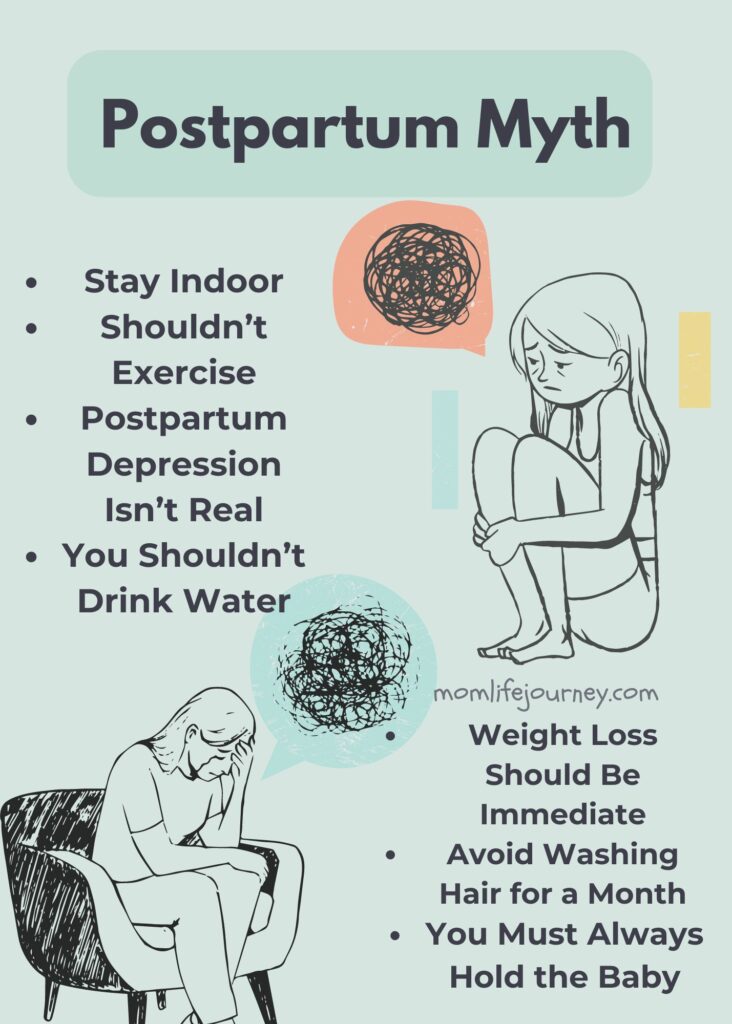
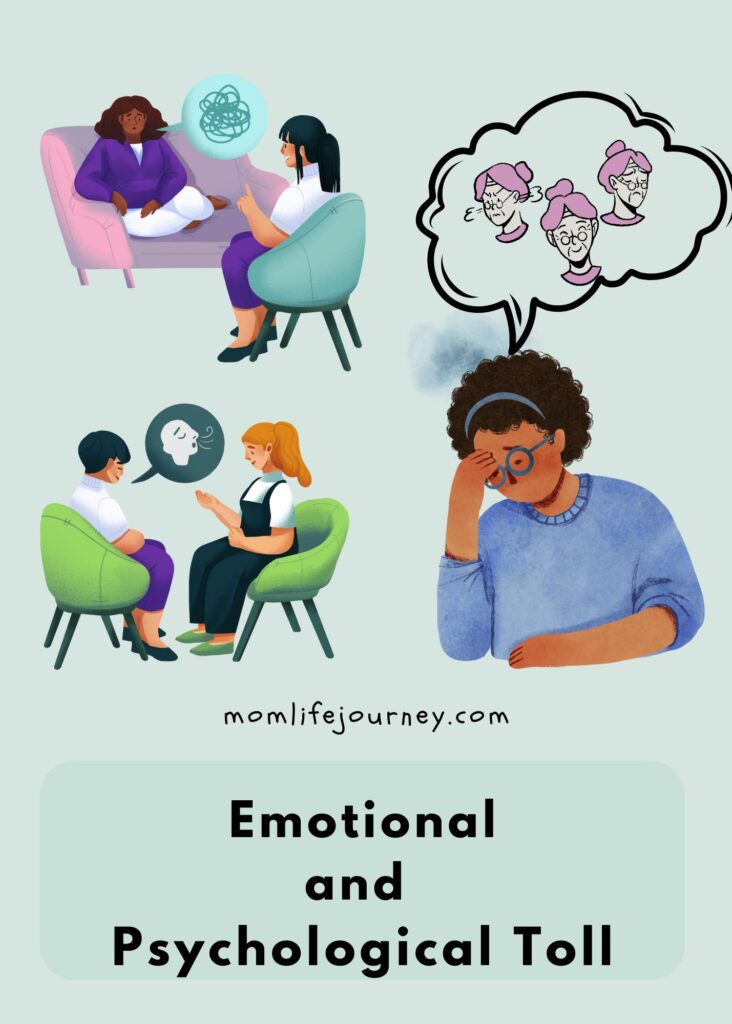
The postpartum period is a time of immense change and adjustment. For new Indian mothers, the emotional and psychological toll can be particularly challenging due to cultural expectations and societal pressures. By understanding these challenges, seeking support, and breaking the stigma around mental health, we can create a more supportive and nurturing environment for new mothers. Remember, it’s okay to ask for help, prioritize self-care, and take time to adjust to your new role. Your well-being is crucial for the health and happiness of both you and your baby.
The Emotional and Psychological Toll
The postpartum period is not just about physical recovery; it is also a time of significant emotional and psychological adjustment. Indian women often face unique emotional challenges due to societal and familial expectations.
Postpartum Depression:
Postpartum depression (PPD) is a serious condition that affects many new mothers. Unfortunately, in India, mental health issues are still stigmatized, and many women do not receive the support or treatment they need.
Isolation:
Despite living in extended families, many new mothers feel isolated in their experiences. The expectation to appear happy and grateful often prevents women from expressing their true feelings and seeking help.
Pressure to Conform:
Cultural expectations can place immense pressure on new mothers. The need to conform to idealized notions of motherhood, coupled with unsolicited advice and criticism, can lead to feelings of inadequacy and stress.
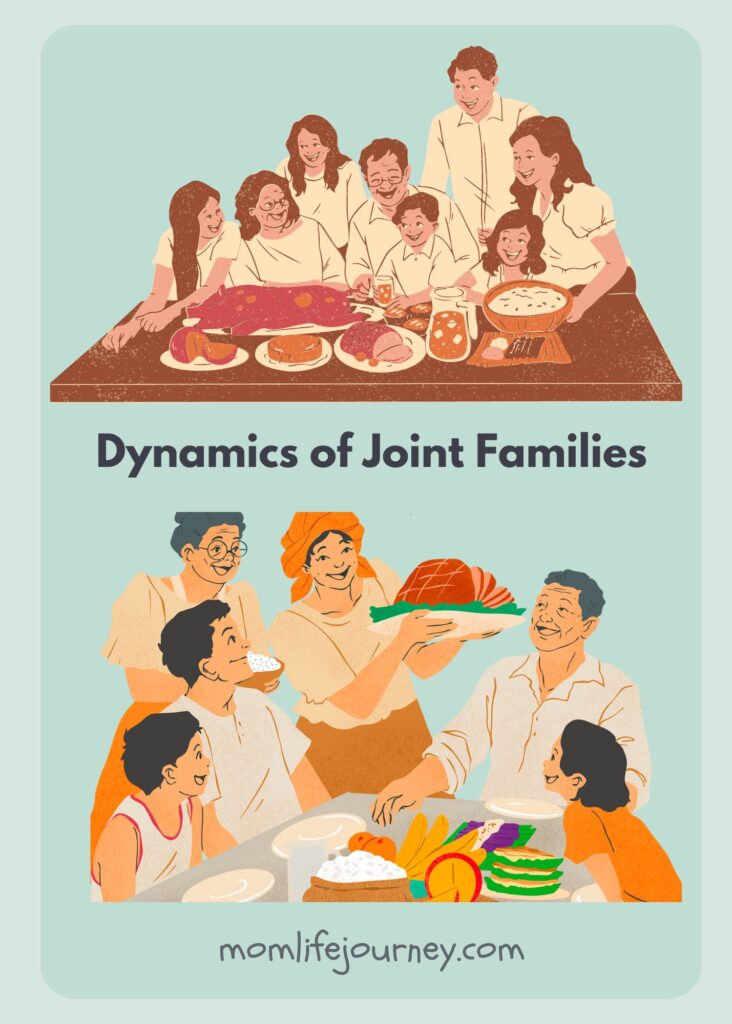
In India, the concept of a joint family, where multiple generations live under one roof, has been a longstanding tradition. This living arrangement brings with it a sense of community, shared responsibilities, and familial support. For new mothers navigating the postpartum period, the dynamics of joint family living can offer both benefits and challenges. Understanding these dynamics can help new mothers leverage the support available while also addressing potential stressors.
The Dynamics of Joint Families
Living in a joint family system has its benefits, but it also introduces unique challenges during the postpartum period.
Lack of Privacy:
Privacy is a rare commodity in joint families. New mothers often find it difficult to have time alone with their baby or their partner, which can hinder bonding and rest.
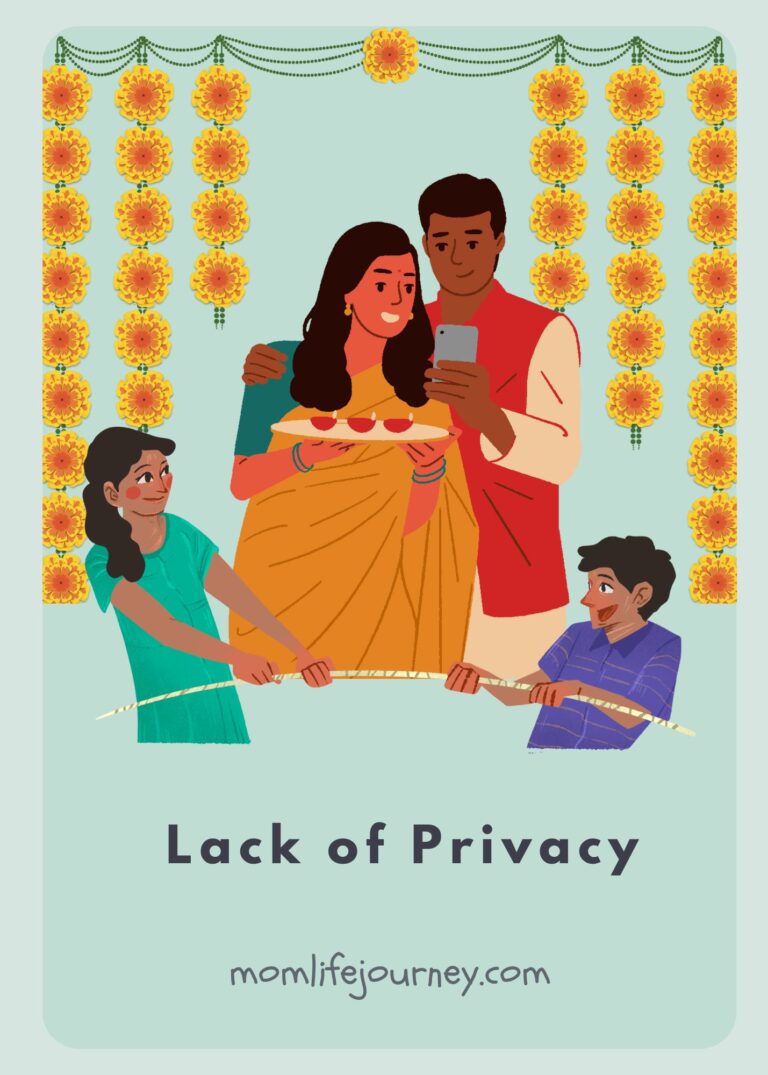
Conflicting Advice:
In a joint family, new mothers are often bombarded with conflicting advice from various family members. This can be overwhelming and confusing, making it hard for the mother to follow her instincts and make her own decisions.
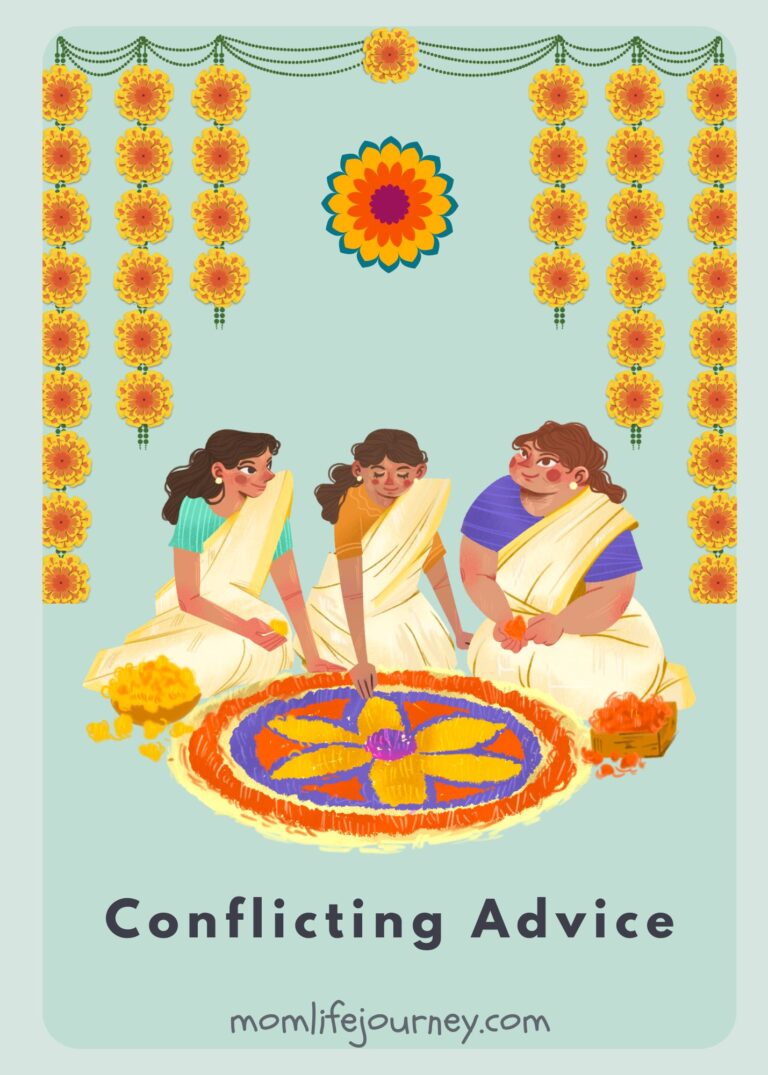
Expectations and Responsibilities:
New mothers in joint families may still be expected to fulfill household duties and participate in family functions, despite their need for rest and recovery. This added responsibility can be stressful and exhausting.
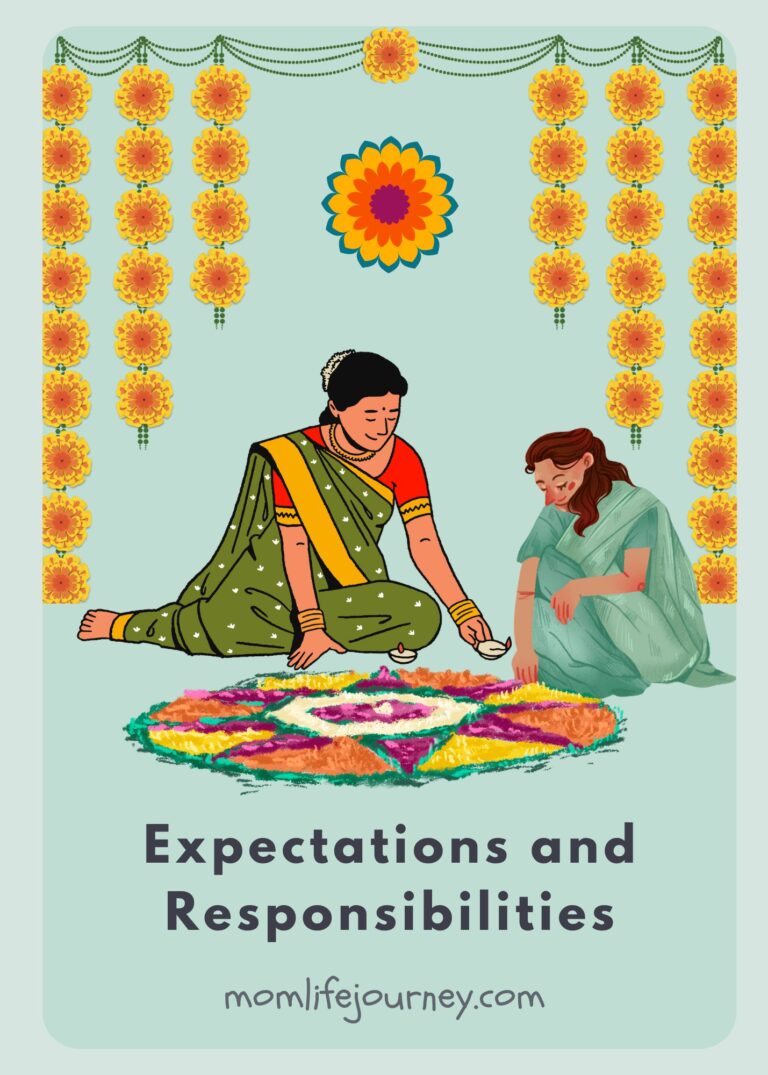
Traditional Practices and Modern Realities
Traditional postpartum practices, known as “jaappa” or “confinement,” are aimed at helping the mother recover and bond with her baby. While these practices have their merits, they can sometimes clash with modern realities.
Restricted Movement:
Traditional confinement often involves limiting the mother’s movement and interactions with the outside world. While this is meant to ensure rest, it can lead to feelings of isolation and boredom.
Dietary Restrictions:
Many traditional diets prescribed during confinement exclude certain foods believed to be harmful. However, these restrictions can sometimes lead to inadequate nutrition, affecting the mother’s health and recovery.
Balancing Tradition and Modernity:
Many Indian women find themselves caught between adhering to traditional practices and embracing modern medical advice. This balancing act can be stressful and confusing, as they try to navigate the best path for their recovery and their baby’s well-being.
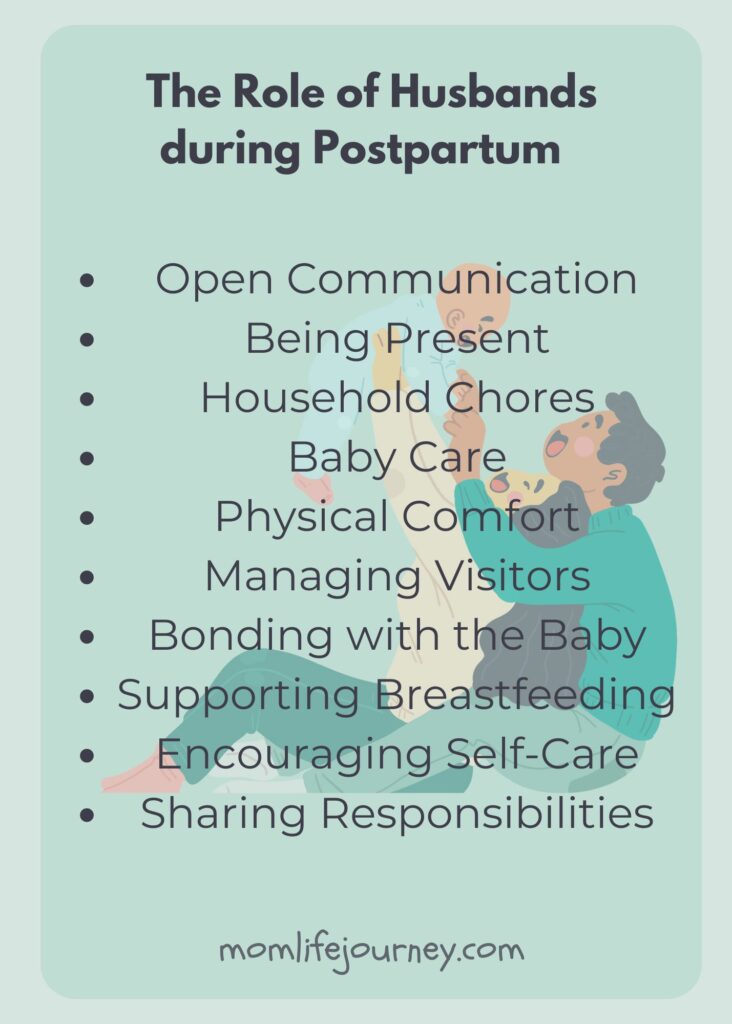
The postpartum period is a transformative time that requires immense support and understanding. Husbands and partners play a vital role in ensuring the well-being of new mothers during this phase. By providing emotional, physical, practical, and mental health support, partners can help create a nurturing environment that fosters recovery and bonding. Active participation, open communication, and empathy are the cornerstones of effective support, making the journey of parenthood a shared and enriching experience.
The Role of Husbands and Partners
The support of a husband or partner can make a significant difference in the postpartum experience. However, traditional gender roles and expectations in India often leave new mothers feeling unsupported.
Limited Involvement:
In many Indian households, the primary responsibility of caring for the newborn falls on the mother. Husbands are often less involved, due to traditional gender roles or work commitments.
Emotional Support:
New mothers need emotional support and understanding from their partners. However, the lack of open communication about mental health and emotional well-being can leave women feeling unsupported.
Shared Responsibilities:
Encouraging husbands to share the responsibilities of childcare and household duties can ease the burden on new mothers. This requires a shift in mindset and breaking away from traditional gender roles.
The postpartum period is a time of significant adjustment for new mothers as they navigate the challenges of caring for a newborn and recovering from childbirth. For many mothers, breastfeeding is a key aspect of this period. While direct breastfeeding is often preferred for its bonding benefits and simplicity, using a breast pump can offer numerous advantages that can enhance the breastfeeding experience and support a mother’s overall well-being.
The postpartum period is a critical time in a woman’s life, filled with both joy and challenges. For Indian women, the complexities of cultural expectations, traditional practices, and family dynamics add unique layers to these challenges. By understanding and addressing these issues, we can create a more supportive environment for new mothers. It is essential to prioritize physical recovery, provide emotional support, involve partners, ensure access to quality healthcare, and foster open conversations about postpartum experiences. Together, we can help Indian women navigate this transformative journey with strength, resilience, and the support they deserve.